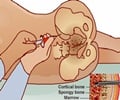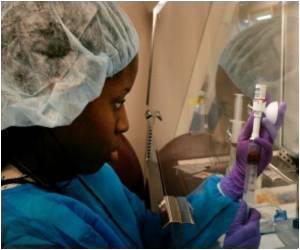Researchers at the University of North Carolina led by chemistry professor Joseph DeSimone have created nanoparticles that mimic red blood cells, initiating the way to develop synthetic blood.

This invention could have a major impact in the treatment of cancer. Cancerous cells, being softer than healthy cells, spread to different places in the body. The new, flexible hydrogel particles, moving through the body like red blood cells and remaining in circulation for a longer period of time, can be loaded with cancer-fighting medicines to target the cancerous cells for a more aggressive treatment method.
Source-Medindia










